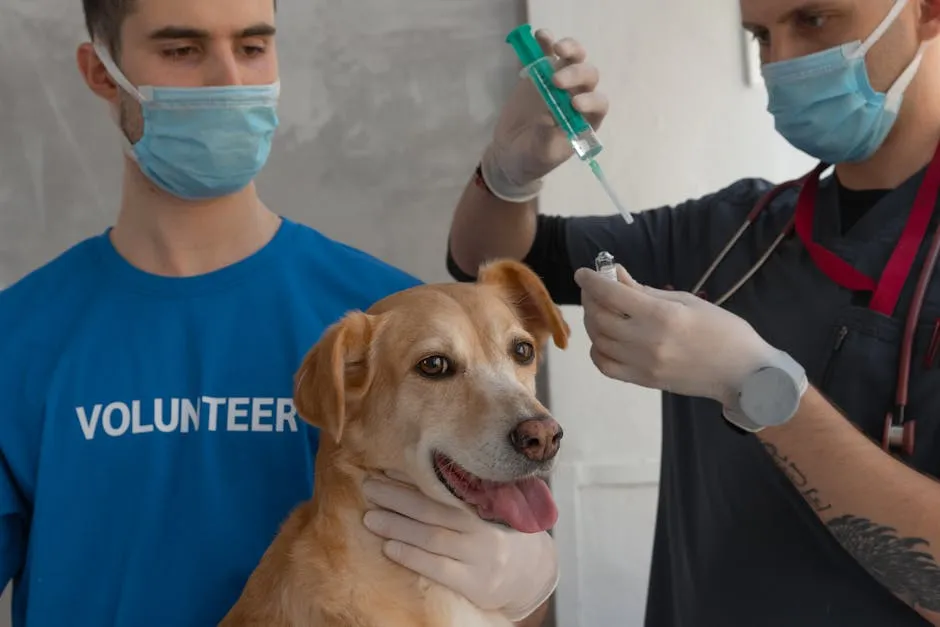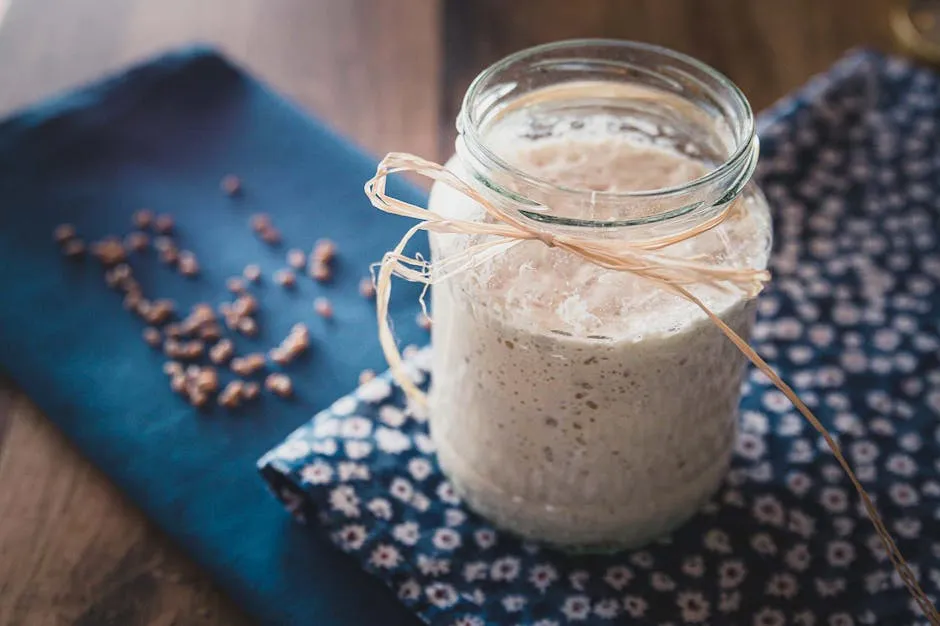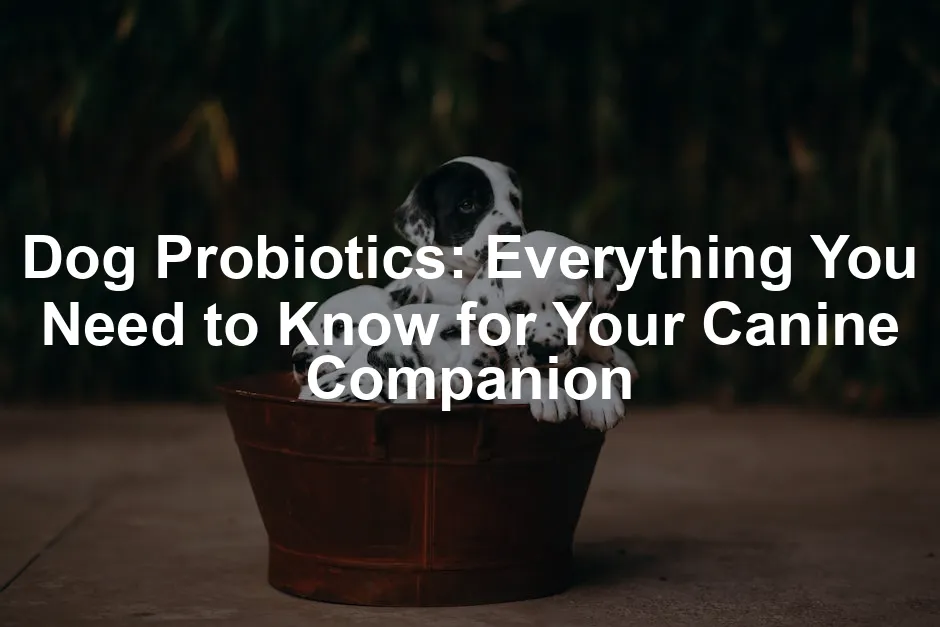Stress can negatively impact your dog’s digestion too. Scenarios like moving, traveling, or new environments can cause anxiety, resulting in digestive upset. Probiotics can help mitigate these stress-related issues.
Lastly, older dogs often experience digestive changes. As their bodies age, maintaining gut health becomes increasingly important. Regular probiotics can support their digestive system and overall health, ensuring they remain active and happy.
Probiotics can be incredibly beneficial in specific situations. If your dog has recently undergone antibiotic treatment, probiotics can help restore gut flora. Antibiotics often kill both harmful and beneficial bacteria, leading to digestive issues.
Probiotics are also helpful during dietary changes. Switching your dog’s food can upset their stomach, and introducing probiotics can ease this transition.
Stress can negatively impact your dog’s digestion too. Scenarios like moving, traveling, or new environments can cause anxiety, resulting in digestive upset. Probiotics can help mitigate these stress-related issues.
Lastly, older dogs often experience digestive changes. As their bodies age, maintaining gut health becomes increasingly important. Regular probiotics can support their digestive system and overall health, ensuring they remain active and happy.
–>For insights on how to improve cognitive health in older dogs, check out how to improve cognitive health in older dogs through diet and exercise.

Potential Side Effects and Considerations
Possible Side Effects
When introducing probiotics to your dog’s diet, some side effects may occur. Common issues include mild digestive upset, gas, or diarrhea. These symptoms usually arise as your dog’s gut adjusts to the new bacteria. It’s essential to monitor your dog closely during this period. If you notice any concerning reactions, consult your vet promptly. Keeping an eye on your dog’s stool consistency and overall behavior can help you gauge how well they’re adapting.
For peace of mind, consider investing in a Dog First Aid Kit. It’s a smart way to be prepared for any unexpected situations, ensuring your pup’s safety and well-being.

Safety Precautions
Proper dosing is crucial when administering probiotics. Always follow the recommended guidelines on the product label. For dogs with underlying health conditions, consulting a veterinarian before starting probiotics is essential. Some medical issues can influence how your dog responds to these supplements. Your vet can recommend the best type and dosage tailored to your dog’s unique needs. Taking these precautions ensures your furry friend receives the benefits without unnecessary risks.

Conclusion
Probiotics play a vital role in maintaining your dog’s health. They support digestion, boost the immune system, and improve overall well-being. Adding probiotics to your dog’s diet may lead to a happier, healthier life. Always consult your veterinarian for personalized advice on the best probiotics for your pet. Taking this step ensures your furry companion gets the most out of their probiotic journey.
FAQs
Please let us know what you think about our content by leaving a comment down below!
Thank you for reading till here 🙂
All images from Pexels
Probiotics can be incredibly beneficial in specific situations. If your dog has recently undergone antibiotic treatment, probiotics can help restore gut flora. Antibiotics often kill both harmful and beneficial bacteria, leading to digestive issues.
Probiotics are also helpful during dietary changes. Switching your dog’s food can upset their stomach, and introducing probiotics can ease this transition.
Stress can negatively impact your dog’s digestion too. Scenarios like moving, traveling, or new environments can cause anxiety, resulting in digestive upset. Probiotics can help mitigate these stress-related issues.
Lastly, older dogs often experience digestive changes. As their bodies age, maintaining gut health becomes increasingly important. Regular probiotics can support their digestive system and overall health, ensuring they remain active and happy.
–>For insights on how to improve cognitive health in older dogs, check out how to improve cognitive health in older dogs through diet and exercise.

Potential Side Effects and Considerations
Possible Side Effects
When introducing probiotics to your dog’s diet, some side effects may occur. Common issues include mild digestive upset, gas, or diarrhea. These symptoms usually arise as your dog’s gut adjusts to the new bacteria. It’s essential to monitor your dog closely during this period. If you notice any concerning reactions, consult your vet promptly. Keeping an eye on your dog’s stool consistency and overall behavior can help you gauge how well they’re adapting.
For peace of mind, consider investing in a Dog First Aid Kit. It’s a smart way to be prepared for any unexpected situations, ensuring your pup’s safety and well-being.

Safety Precautions
Proper dosing is crucial when administering probiotics. Always follow the recommended guidelines on the product label. For dogs with underlying health conditions, consulting a veterinarian before starting probiotics is essential. Some medical issues can influence how your dog responds to these supplements. Your vet can recommend the best type and dosage tailored to your dog’s unique needs. Taking these precautions ensures your furry friend receives the benefits without unnecessary risks.

Conclusion
Probiotics play a vital role in maintaining your dog’s health. They support digestion, boost the immune system, and improve overall well-being. Adding probiotics to your dog’s diet may lead to a happier, healthier life. Always consult your veterinarian for personalized advice on the best probiotics for your pet. Taking this step ensures your furry companion gets the most out of their probiotic journey.
FAQs
Please let us know what you think about our content by leaving a comment down below!
Thank you for reading till here 🙂
All images from Pexels
Several reputable brands offer high-quality probiotics for dogs. FortiFlora from Purina is well-known and often recommended by veterinarians. It’s available in convenient powder form. You can find it here: FortiFlora Probiotic for Dogs.
Another great option is Proviable by Nutramax. This product comes in both capsules and paste forms, making it versatile for different dogs. You can check it out here: Proviable Probiotic for Dogs.
For those looking for something more natural, consider Herbacare Gut Health. This powder blend contains beneficial bacteria and prebiotics, promoting digestive health without harmful additives. Always choose products backed by veterinary recommendations to ensure your dog’s safety. You can find it here: Herbacare Gut Health Probiotic Powder.

When to Use Probiotics
Situations Requiring Probiotics
Probiotics can be incredibly beneficial in specific situations. If your dog has recently undergone antibiotic treatment, probiotics can help restore gut flora. Antibiotics often kill both harmful and beneficial bacteria, leading to digestive issues.
Probiotics are also helpful during dietary changes. Switching your dog’s food can upset their stomach, and introducing probiotics can ease this transition.
Stress can negatively impact your dog’s digestion too. Scenarios like moving, traveling, or new environments can cause anxiety, resulting in digestive upset. Probiotics can help mitigate these stress-related issues.
Lastly, older dogs often experience digestive changes. As their bodies age, maintaining gut health becomes increasingly important. Regular probiotics can support their digestive system and overall health, ensuring they remain active and happy.
–>For insights on how to improve cognitive health in older dogs, check out how to improve cognitive health in older dogs through diet and exercise.

Potential Side Effects and Considerations
Possible Side Effects
When introducing probiotics to your dog’s diet, some side effects may occur. Common issues include mild digestive upset, gas, or diarrhea. These symptoms usually arise as your dog’s gut adjusts to the new bacteria. It’s essential to monitor your dog closely during this period. If you notice any concerning reactions, consult your vet promptly. Keeping an eye on your dog’s stool consistency and overall behavior can help you gauge how well they’re adapting.
For peace of mind, consider investing in a Dog First Aid Kit. It’s a smart way to be prepared for any unexpected situations, ensuring your pup’s safety and well-being.

Safety Precautions
Proper dosing is crucial when administering probiotics. Always follow the recommended guidelines on the product label. For dogs with underlying health conditions, consulting a veterinarian before starting probiotics is essential. Some medical issues can influence how your dog responds to these supplements. Your vet can recommend the best type and dosage tailored to your dog’s unique needs. Taking these precautions ensures your furry friend receives the benefits without unnecessary risks.

Conclusion
Probiotics play a vital role in maintaining your dog’s health. They support digestion, boost the immune system, and improve overall well-being. Adding probiotics to your dog’s diet may lead to a happier, healthier life. Always consult your veterinarian for personalized advice on the best probiotics for your pet. Taking this step ensures your furry companion gets the most out of their probiotic journey.
FAQs
Please let us know what you think about our content by leaving a comment down below!
Thank you for reading till here 🙂
All images from Pexels
Several reputable brands offer high-quality probiotics for dogs. FortiFlora from Purina is well-known and often recommended by veterinarians. It’s available in convenient powder form. You can find it here: FortiFlora Probiotic for Dogs.
Another great option is Proviable by Nutramax. This product comes in both capsules and paste forms, making it versatile for different dogs. You can check it out here: Proviable Probiotic for Dogs.
For those looking for something more natural, consider Herbacare Gut Health. This powder blend contains beneficial bacteria and prebiotics, promoting digestive health without harmful additives. Always choose products backed by veterinary recommendations to ensure your dog’s safety. You can find it here: Herbacare Gut Health Probiotic Powder.

When to Use Probiotics
Situations Requiring Probiotics
Probiotics can be incredibly beneficial in specific situations. If your dog has recently undergone antibiotic treatment, probiotics can help restore gut flora. Antibiotics often kill both harmful and beneficial bacteria, leading to digestive issues.
Probiotics are also helpful during dietary changes. Switching your dog’s food can upset their stomach, and introducing probiotics can ease this transition.
Stress can negatively impact your dog’s digestion too. Scenarios like moving, traveling, or new environments can cause anxiety, resulting in digestive upset. Probiotics can help mitigate these stress-related issues.
Lastly, older dogs often experience digestive changes. As their bodies age, maintaining gut health becomes increasingly important. Regular probiotics can support their digestive system and overall health, ensuring they remain active and happy.
–>For insights on how to improve cognitive health in older dogs, check out how to improve cognitive health in older dogs through diet and exercise.

Potential Side Effects and Considerations
Possible Side Effects
When introducing probiotics to your dog’s diet, some side effects may occur. Common issues include mild digestive upset, gas, or diarrhea. These symptoms usually arise as your dog’s gut adjusts to the new bacteria. It’s essential to monitor your dog closely during this period. If you notice any concerning reactions, consult your vet promptly. Keeping an eye on your dog’s stool consistency and overall behavior can help you gauge how well they’re adapting.
For peace of mind, consider investing in a Dog First Aid Kit. It’s a smart way to be prepared for any unexpected situations, ensuring your pup’s safety and well-being.

Safety Precautions
Proper dosing is crucial when administering probiotics. Always follow the recommended guidelines on the product label. For dogs with underlying health conditions, consulting a veterinarian before starting probiotics is essential. Some medical issues can influence how your dog responds to these supplements. Your vet can recommend the best type and dosage tailored to your dog’s unique needs. Taking these precautions ensures your furry friend receives the benefits without unnecessary risks.

Conclusion
Probiotics play a vital role in maintaining your dog’s health. They support digestion, boost the immune system, and improve overall well-being. Adding probiotics to your dog’s diet may lead to a happier, healthier life. Always consult your veterinarian for personalized advice on the best probiotics for your pet. Taking this step ensures your furry companion gets the most out of their probiotic journey.
FAQs
Please let us know what you think about our content by leaving a comment down below!
Thank you for reading till here 🙂
All images from Pexels
Next, look at the CFUs, or colony-forming units. This measurement indicates the number of live bacteria in the product. A higher CFU count typically means more beneficial bacteria for your dog. Aim for a product that contains at least 1 billion CFUs per serving.
Delivery methods also matter. Probiotics come in powders, capsules, and chews. Choose the form your dog prefers to ensure consistent use.
Before starting any new supplement, consulting your veterinarian is crucial. They can recommend the best probiotic based on your dog’s health status and dietary needs.

Recommended Products
Several reputable brands offer high-quality probiotics for dogs. FortiFlora from Purina is well-known and often recommended by veterinarians. It’s available in convenient powder form. You can find it here: FortiFlora Probiotic for Dogs.
Another great option is Proviable by Nutramax. This product comes in both capsules and paste forms, making it versatile for different dogs. You can check it out here: Proviable Probiotic for Dogs.
For those looking for something more natural, consider Herbacare Gut Health. This powder blend contains beneficial bacteria and prebiotics, promoting digestive health without harmful additives. Always choose products backed by veterinary recommendations to ensure your dog’s safety. You can find it here: Herbacare Gut Health Probiotic Powder.

When to Use Probiotics
Situations Requiring Probiotics
Probiotics can be incredibly beneficial in specific situations. If your dog has recently undergone antibiotic treatment, probiotics can help restore gut flora. Antibiotics often kill both harmful and beneficial bacteria, leading to digestive issues.
Probiotics are also helpful during dietary changes. Switching your dog’s food can upset their stomach, and introducing probiotics can ease this transition.
Stress can negatively impact your dog’s digestion too. Scenarios like moving, traveling, or new environments can cause anxiety, resulting in digestive upset. Probiotics can help mitigate these stress-related issues.
Lastly, older dogs often experience digestive changes. As their bodies age, maintaining gut health becomes increasingly important. Regular probiotics can support their digestive system and overall health, ensuring they remain active and happy.
–>For insights on how to improve cognitive health in older dogs, check out how to improve cognitive health in older dogs through diet and exercise.

Potential Side Effects and Considerations
Possible Side Effects
When introducing probiotics to your dog’s diet, some side effects may occur. Common issues include mild digestive upset, gas, or diarrhea. These symptoms usually arise as your dog’s gut adjusts to the new bacteria. It’s essential to monitor your dog closely during this period. If you notice any concerning reactions, consult your vet promptly. Keeping an eye on your dog’s stool consistency and overall behavior can help you gauge how well they’re adapting.
For peace of mind, consider investing in a Dog First Aid Kit. It’s a smart way to be prepared for any unexpected situations, ensuring your pup’s safety and well-being.

Safety Precautions
Proper dosing is crucial when administering probiotics. Always follow the recommended guidelines on the product label. For dogs with underlying health conditions, consulting a veterinarian before starting probiotics is essential. Some medical issues can influence how your dog responds to these supplements. Your vet can recommend the best type and dosage tailored to your dog’s unique needs. Taking these precautions ensures your furry friend receives the benefits without unnecessary risks.

Conclusion
Probiotics play a vital role in maintaining your dog’s health. They support digestion, boost the immune system, and improve overall well-being. Adding probiotics to your dog’s diet may lead to a happier, healthier life. Always consult your veterinarian for personalized advice on the best probiotics for your pet. Taking this step ensures your furry companion gets the most out of their probiotic journey.
FAQs
Please let us know what you think about our content by leaving a comment down below!
Thank you for reading till here 🙂
All images from Pexels
Selecting the right probiotic for your dog involves several key factors. First, consider the specific strains included in the product. Different strains offer various benefits, so it’s essential to choose one that meets your dog’s needs.
Next, look at the CFUs, or colony-forming units. This measurement indicates the number of live bacteria in the product. A higher CFU count typically means more beneficial bacteria for your dog. Aim for a product that contains at least 1 billion CFUs per serving.
Delivery methods also matter. Probiotics come in powders, capsules, and chews. Choose the form your dog prefers to ensure consistent use.
Before starting any new supplement, consulting your veterinarian is crucial. They can recommend the best probiotic based on your dog’s health status and dietary needs.

Recommended Products
Several reputable brands offer high-quality probiotics for dogs. FortiFlora from Purina is well-known and often recommended by veterinarians. It’s available in convenient powder form. You can find it here: FortiFlora Probiotic for Dogs.
Another great option is Proviable by Nutramax. This product comes in both capsules and paste forms, making it versatile for different dogs. You can check it out here: Proviable Probiotic for Dogs.
For those looking for something more natural, consider Herbacare Gut Health. This powder blend contains beneficial bacteria and prebiotics, promoting digestive health without harmful additives. Always choose products backed by veterinary recommendations to ensure your dog’s safety. You can find it here: Herbacare Gut Health Probiotic Powder.

When to Use Probiotics
Situations Requiring Probiotics
Probiotics can be incredibly beneficial in specific situations. If your dog has recently undergone antibiotic treatment, probiotics can help restore gut flora. Antibiotics often kill both harmful and beneficial bacteria, leading to digestive issues.
Probiotics are also helpful during dietary changes. Switching your dog’s food can upset their stomach, and introducing probiotics can ease this transition.
Stress can negatively impact your dog’s digestion too. Scenarios like moving, traveling, or new environments can cause anxiety, resulting in digestive upset. Probiotics can help mitigate these stress-related issues.
Lastly, older dogs often experience digestive changes. As their bodies age, maintaining gut health becomes increasingly important. Regular probiotics can support their digestive system and overall health, ensuring they remain active and happy.
–>For insights on how to improve cognitive health in older dogs, check out how to improve cognitive health in older dogs through diet and exercise.

Potential Side Effects and Considerations
Possible Side Effects
When introducing probiotics to your dog’s diet, some side effects may occur. Common issues include mild digestive upset, gas, or diarrhea. These symptoms usually arise as your dog’s gut adjusts to the new bacteria. It’s essential to monitor your dog closely during this period. If you notice any concerning reactions, consult your vet promptly. Keeping an eye on your dog’s stool consistency and overall behavior can help you gauge how well they’re adapting.
For peace of mind, consider investing in a Dog First Aid Kit. It’s a smart way to be prepared for any unexpected situations, ensuring your pup’s safety and well-being.

Safety Precautions
Proper dosing is crucial when administering probiotics. Always follow the recommended guidelines on the product label. For dogs with underlying health conditions, consulting a veterinarian before starting probiotics is essential. Some medical issues can influence how your dog responds to these supplements. Your vet can recommend the best type and dosage tailored to your dog’s unique needs. Taking these precautions ensures your furry friend receives the benefits without unnecessary risks.

Conclusion
Probiotics play a vital role in maintaining your dog’s health. They support digestion, boost the immune system, and improve overall well-being. Adding probiotics to your dog’s diet may lead to a happier, healthier life. Always consult your veterinarian for personalized advice on the best probiotics for your pet. Taking this step ensures your furry companion gets the most out of their probiotic journey.
FAQs
Please let us know what you think about our content by leaving a comment down below!
Thank you for reading till here 🙂
All images from Pexels
Selecting the right probiotic for your dog involves several key factors. First, consider the specific strains included in the product. Different strains offer various benefits, so it’s essential to choose one that meets your dog’s needs.
Next, look at the CFUs, or colony-forming units. This measurement indicates the number of live bacteria in the product. A higher CFU count typically means more beneficial bacteria for your dog. Aim for a product that contains at least 1 billion CFUs per serving.
Delivery methods also matter. Probiotics come in powders, capsules, and chews. Choose the form your dog prefers to ensure consistent use.
Before starting any new supplement, consulting your veterinarian is crucial. They can recommend the best probiotic based on your dog’s health status and dietary needs.

Recommended Products
Several reputable brands offer high-quality probiotics for dogs. FortiFlora from Purina is well-known and often recommended by veterinarians. It’s available in convenient powder form. You can find it here: FortiFlora Probiotic for Dogs.
Another great option is Proviable by Nutramax. This product comes in both capsules and paste forms, making it versatile for different dogs. You can check it out here: Proviable Probiotic for Dogs.
For those looking for something more natural, consider Herbacare Gut Health. This powder blend contains beneficial bacteria and prebiotics, promoting digestive health without harmful additives. Always choose products backed by veterinary recommendations to ensure your dog’s safety. You can find it here: Herbacare Gut Health Probiotic Powder.

When to Use Probiotics
Situations Requiring Probiotics
Probiotics can be incredibly beneficial in specific situations. If your dog has recently undergone antibiotic treatment, probiotics can help restore gut flora. Antibiotics often kill both harmful and beneficial bacteria, leading to digestive issues.
Probiotics are also helpful during dietary changes. Switching your dog’s food can upset their stomach, and introducing probiotics can ease this transition.
Stress can negatively impact your dog’s digestion too. Scenarios like moving, traveling, or new environments can cause anxiety, resulting in digestive upset. Probiotics can help mitigate these stress-related issues.
Lastly, older dogs often experience digestive changes. As their bodies age, maintaining gut health becomes increasingly important. Regular probiotics can support their digestive system and overall health, ensuring they remain active and happy.
–>For insights on how to improve cognitive health in older dogs, check out how to improve cognitive health in older dogs through diet and exercise.

Potential Side Effects and Considerations
Possible Side Effects
When introducing probiotics to your dog’s diet, some side effects may occur. Common issues include mild digestive upset, gas, or diarrhea. These symptoms usually arise as your dog’s gut adjusts to the new bacteria. It’s essential to monitor your dog closely during this period. If you notice any concerning reactions, consult your vet promptly. Keeping an eye on your dog’s stool consistency and overall behavior can help you gauge how well they’re adapting.
For peace of mind, consider investing in a Dog First Aid Kit. It’s a smart way to be prepared for any unexpected situations, ensuring your pup’s safety and well-being.

Safety Precautions
Proper dosing is crucial when administering probiotics. Always follow the recommended guidelines on the product label. For dogs with underlying health conditions, consulting a veterinarian before starting probiotics is essential. Some medical issues can influence how your dog responds to these supplements. Your vet can recommend the best type and dosage tailored to your dog’s unique needs. Taking these precautions ensures your furry friend receives the benefits without unnecessary risks.

Conclusion
Probiotics play a vital role in maintaining your dog’s health. They support digestion, boost the immune system, and improve overall well-being. Adding probiotics to your dog’s diet may lead to a happier, healthier life. Always consult your veterinarian for personalized advice on the best probiotics for your pet. Taking this step ensures your furry companion gets the most out of their probiotic journey.
FAQs
Please let us know what you think about our content by leaving a comment down below!
Thank you for reading till here 🙂
All images from Pexels
Bifidobacterium animalis is another beneficial strain. It’s known for enhancing gut health and reducing gastrointestinal discomfort. This strain can also boost your dog’s immune system, helping them fend off illnesses.
Other strains like Enterococcus faecium and Bifidobacterium breve are also beneficial. They contribute to a healthy digestive system and can alleviate issues like diarrhea or constipation.
These strains work together, promoting a balanced gut microbiome. This balance is crucial for your dog’s overall health and well-being.

Choosing the Right Probiotic
Factors to Consider
Selecting the right probiotic for your dog involves several key factors. First, consider the specific strains included in the product. Different strains offer various benefits, so it’s essential to choose one that meets your dog’s needs.
Next, look at the CFUs, or colony-forming units. This measurement indicates the number of live bacteria in the product. A higher CFU count typically means more beneficial bacteria for your dog. Aim for a product that contains at least 1 billion CFUs per serving.
Delivery methods also matter. Probiotics come in powders, capsules, and chews. Choose the form your dog prefers to ensure consistent use.
Before starting any new supplement, consulting your veterinarian is crucial. They can recommend the best probiotic based on your dog’s health status and dietary needs.

Recommended Products
Several reputable brands offer high-quality probiotics for dogs. FortiFlora from Purina is well-known and often recommended by veterinarians. It’s available in convenient powder form. You can find it here: FortiFlora Probiotic for Dogs.
Another great option is Proviable by Nutramax. This product comes in both capsules and paste forms, making it versatile for different dogs. You can check it out here: Proviable Probiotic for Dogs.
For those looking for something more natural, consider Herbacare Gut Health. This powder blend contains beneficial bacteria and prebiotics, promoting digestive health without harmful additives. Always choose products backed by veterinary recommendations to ensure your dog’s safety. You can find it here: Herbacare Gut Health Probiotic Powder.

When to Use Probiotics
Situations Requiring Probiotics
Probiotics can be incredibly beneficial in specific situations. If your dog has recently undergone antibiotic treatment, probiotics can help restore gut flora. Antibiotics often kill both harmful and beneficial bacteria, leading to digestive issues.
Probiotics are also helpful during dietary changes. Switching your dog’s food can upset their stomach, and introducing probiotics can ease this transition.
Stress can negatively impact your dog’s digestion too. Scenarios like moving, traveling, or new environments can cause anxiety, resulting in digestive upset. Probiotics can help mitigate these stress-related issues.
Lastly, older dogs often experience digestive changes. As their bodies age, maintaining gut health becomes increasingly important. Regular probiotics can support their digestive system and overall health, ensuring they remain active and happy.
–>For insights on how to improve cognitive health in older dogs, check out how to improve cognitive health in older dogs through diet and exercise.

Potential Side Effects and Considerations
Possible Side Effects
When introducing probiotics to your dog’s diet, some side effects may occur. Common issues include mild digestive upset, gas, or diarrhea. These symptoms usually arise as your dog’s gut adjusts to the new bacteria. It’s essential to monitor your dog closely during this period. If you notice any concerning reactions, consult your vet promptly. Keeping an eye on your dog’s stool consistency and overall behavior can help you gauge how well they’re adapting.
For peace of mind, consider investing in a Dog First Aid Kit. It’s a smart way to be prepared for any unexpected situations, ensuring your pup’s safety and well-being.

Safety Precautions
Proper dosing is crucial when administering probiotics. Always follow the recommended guidelines on the product label. For dogs with underlying health conditions, consulting a veterinarian before starting probiotics is essential. Some medical issues can influence how your dog responds to these supplements. Your vet can recommend the best type and dosage tailored to your dog’s unique needs. Taking these precautions ensures your furry friend receives the benefits without unnecessary risks.

Conclusion
Probiotics play a vital role in maintaining your dog’s health. They support digestion, boost the immune system, and improve overall well-being. Adding probiotics to your dog’s diet may lead to a happier, healthier life. Always consult your veterinarian for personalized advice on the best probiotics for your pet. Taking this step ensures your furry companion gets the most out of their probiotic journey.
FAQs
Please let us know what you think about our content by leaving a comment down below!
Thank you for reading till here 🙂
All images from Pexels
Lactobacillus acidophilus helps balance gut bacteria and supports digestion. It’s commonly found in many probiotic supplements. This strain can improve nutrient absorption, which is vital for your dog’s health.
Bifidobacterium animalis is another beneficial strain. It’s known for enhancing gut health and reducing gastrointestinal discomfort. This strain can also boost your dog’s immune system, helping them fend off illnesses.
Other strains like Enterococcus faecium and Bifidobacterium breve are also beneficial. They contribute to a healthy digestive system and can alleviate issues like diarrhea or constipation.
These strains work together, promoting a balanced gut microbiome. This balance is crucial for your dog’s overall health and well-being.

Choosing the Right Probiotic
Factors to Consider
Selecting the right probiotic for your dog involves several key factors. First, consider the specific strains included in the product. Different strains offer various benefits, so it’s essential to choose one that meets your dog’s needs.
Next, look at the CFUs, or colony-forming units. This measurement indicates the number of live bacteria in the product. A higher CFU count typically means more beneficial bacteria for your dog. Aim for a product that contains at least 1 billion CFUs per serving.
Delivery methods also matter. Probiotics come in powders, capsules, and chews. Choose the form your dog prefers to ensure consistent use.
Before starting any new supplement, consulting your veterinarian is crucial. They can recommend the best probiotic based on your dog’s health status and dietary needs.

Recommended Products
Several reputable brands offer high-quality probiotics for dogs. FortiFlora from Purina is well-known and often recommended by veterinarians. It’s available in convenient powder form. You can find it here: FortiFlora Probiotic for Dogs.
Another great option is Proviable by Nutramax. This product comes in both capsules and paste forms, making it versatile for different dogs. You can check it out here: Proviable Probiotic for Dogs.
For those looking for something more natural, consider Herbacare Gut Health. This powder blend contains beneficial bacteria and prebiotics, promoting digestive health without harmful additives. Always choose products backed by veterinary recommendations to ensure your dog’s safety. You can find it here: Herbacare Gut Health Probiotic Powder.

When to Use Probiotics
Situations Requiring Probiotics
Probiotics can be incredibly beneficial in specific situations. If your dog has recently undergone antibiotic treatment, probiotics can help restore gut flora. Antibiotics often kill both harmful and beneficial bacteria, leading to digestive issues.
Probiotics are also helpful during dietary changes. Switching your dog’s food can upset their stomach, and introducing probiotics can ease this transition.
Stress can negatively impact your dog’s digestion too. Scenarios like moving, traveling, or new environments can cause anxiety, resulting in digestive upset. Probiotics can help mitigate these stress-related issues.
Lastly, older dogs often experience digestive changes. As their bodies age, maintaining gut health becomes increasingly important. Regular probiotics can support their digestive system and overall health, ensuring they remain active and happy.
–>For insights on how to improve cognitive health in older dogs, check out how to improve cognitive health in older dogs through diet and exercise.

Potential Side Effects and Considerations
Possible Side Effects
When introducing probiotics to your dog’s diet, some side effects may occur. Common issues include mild digestive upset, gas, or diarrhea. These symptoms usually arise as your dog’s gut adjusts to the new bacteria. It’s essential to monitor your dog closely during this period. If you notice any concerning reactions, consult your vet promptly. Keeping an eye on your dog’s stool consistency and overall behavior can help you gauge how well they’re adapting.
For peace of mind, consider investing in a Dog First Aid Kit. It’s a smart way to be prepared for any unexpected situations, ensuring your pup’s safety and well-being.

Safety Precautions
Proper dosing is crucial when administering probiotics. Always follow the recommended guidelines on the product label. For dogs with underlying health conditions, consulting a veterinarian before starting probiotics is essential. Some medical issues can influence how your dog responds to these supplements. Your vet can recommend the best type and dosage tailored to your dog’s unique needs. Taking these precautions ensures your furry friend receives the benefits without unnecessary risks.

Conclusion
Probiotics play a vital role in maintaining your dog’s health. They support digestion, boost the immune system, and improve overall well-being. Adding probiotics to your dog’s diet may lead to a happier, healthier life. Always consult your veterinarian for personalized advice on the best probiotics for your pet. Taking this step ensures your furry companion gets the most out of their probiotic journey.
FAQs
Please let us know what you think about our content by leaving a comment down below!
Thank you for reading till here 🙂
All images from Pexels
When it comes to dog probiotics, certain strains stand out for their effectiveness. Two popular strains are Lactobacillus acidophilus and Bifidobacterium animalis.
Lactobacillus acidophilus helps balance gut bacteria and supports digestion. It’s commonly found in many probiotic supplements. This strain can improve nutrient absorption, which is vital for your dog’s health.
Bifidobacterium animalis is another beneficial strain. It’s known for enhancing gut health and reducing gastrointestinal discomfort. This strain can also boost your dog’s immune system, helping them fend off illnesses.
Other strains like Enterococcus faecium and Bifidobacterium breve are also beneficial. They contribute to a healthy digestive system and can alleviate issues like diarrhea or constipation.
These strains work together, promoting a balanced gut microbiome. This balance is crucial for your dog’s overall health and well-being.

Choosing the Right Probiotic
Factors to Consider
Selecting the right probiotic for your dog involves several key factors. First, consider the specific strains included in the product. Different strains offer various benefits, so it’s essential to choose one that meets your dog’s needs.
Next, look at the CFUs, or colony-forming units. This measurement indicates the number of live bacteria in the product. A higher CFU count typically means more beneficial bacteria for your dog. Aim for a product that contains at least 1 billion CFUs per serving.
Delivery methods also matter. Probiotics come in powders, capsules, and chews. Choose the form your dog prefers to ensure consistent use.
Before starting any new supplement, consulting your veterinarian is crucial. They can recommend the best probiotic based on your dog’s health status and dietary needs.

Recommended Products
Several reputable brands offer high-quality probiotics for dogs. FortiFlora from Purina is well-known and often recommended by veterinarians. It’s available in convenient powder form. You can find it here: FortiFlora Probiotic for Dogs.
Another great option is Proviable by Nutramax. This product comes in both capsules and paste forms, making it versatile for different dogs. You can check it out here: Proviable Probiotic for Dogs.
For those looking for something more natural, consider Herbacare Gut Health. This powder blend contains beneficial bacteria and prebiotics, promoting digestive health without harmful additives. Always choose products backed by veterinary recommendations to ensure your dog’s safety. You can find it here: Herbacare Gut Health Probiotic Powder.

When to Use Probiotics
Situations Requiring Probiotics
Probiotics can be incredibly beneficial in specific situations. If your dog has recently undergone antibiotic treatment, probiotics can help restore gut flora. Antibiotics often kill both harmful and beneficial bacteria, leading to digestive issues.
Probiotics are also helpful during dietary changes. Switching your dog’s food can upset their stomach, and introducing probiotics can ease this transition.
Stress can negatively impact your dog’s digestion too. Scenarios like moving, traveling, or new environments can cause anxiety, resulting in digestive upset. Probiotics can help mitigate these stress-related issues.
Lastly, older dogs often experience digestive changes. As their bodies age, maintaining gut health becomes increasingly important. Regular probiotics can support their digestive system and overall health, ensuring they remain active and happy.
–>For insights on how to improve cognitive health in older dogs, check out how to improve cognitive health in older dogs through diet and exercise.

Potential Side Effects and Considerations
Possible Side Effects
When introducing probiotics to your dog’s diet, some side effects may occur. Common issues include mild digestive upset, gas, or diarrhea. These symptoms usually arise as your dog’s gut adjusts to the new bacteria. It’s essential to monitor your dog closely during this period. If you notice any concerning reactions, consult your vet promptly. Keeping an eye on your dog’s stool consistency and overall behavior can help you gauge how well they’re adapting.
For peace of mind, consider investing in a Dog First Aid Kit. It’s a smart way to be prepared for any unexpected situations, ensuring your pup’s safety and well-being.

Safety Precautions
Proper dosing is crucial when administering probiotics. Always follow the recommended guidelines on the product label. For dogs with underlying health conditions, consulting a veterinarian before starting probiotics is essential. Some medical issues can influence how your dog responds to these supplements. Your vet can recommend the best type and dosage tailored to your dog’s unique needs. Taking these precautions ensures your furry friend receives the benefits without unnecessary risks.

Conclusion
Probiotics play a vital role in maintaining your dog’s health. They support digestion, boost the immune system, and improve overall well-being. Adding probiotics to your dog’s diet may lead to a happier, healthier life. Always consult your veterinarian for personalized advice on the best probiotics for your pet. Taking this step ensures your furry companion gets the most out of their probiotic journey.
FAQs
Please let us know what you think about our content by leaving a comment down below!
Thank you for reading till here 🙂
All images from Pexels
When it comes to dog probiotics, certain strains stand out for their effectiveness. Two popular strains are Lactobacillus acidophilus and Bifidobacterium animalis.
Lactobacillus acidophilus helps balance gut bacteria and supports digestion. It’s commonly found in many probiotic supplements. This strain can improve nutrient absorption, which is vital for your dog’s health.
Bifidobacterium animalis is another beneficial strain. It’s known for enhancing gut health and reducing gastrointestinal discomfort. This strain can also boost your dog’s immune system, helping them fend off illnesses.
Other strains like Enterococcus faecium and Bifidobacterium breve are also beneficial. They contribute to a healthy digestive system and can alleviate issues like diarrhea or constipation.
These strains work together, promoting a balanced gut microbiome. This balance is crucial for your dog’s overall health and well-being.

Choosing the Right Probiotic
Factors to Consider
Selecting the right probiotic for your dog involves several key factors. First, consider the specific strains included in the product. Different strains offer various benefits, so it’s essential to choose one that meets your dog’s needs.
Next, look at the CFUs, or colony-forming units. This measurement indicates the number of live bacteria in the product. A higher CFU count typically means more beneficial bacteria for your dog. Aim for a product that contains at least 1 billion CFUs per serving.
Delivery methods also matter. Probiotics come in powders, capsules, and chews. Choose the form your dog prefers to ensure consistent use.
Before starting any new supplement, consulting your veterinarian is crucial. They can recommend the best probiotic based on your dog’s health status and dietary needs.

Recommended Products
Several reputable brands offer high-quality probiotics for dogs. FortiFlora from Purina is well-known and often recommended by veterinarians. It’s available in convenient powder form. You can find it here: FortiFlora Probiotic for Dogs.
Another great option is Proviable by Nutramax. This product comes in both capsules and paste forms, making it versatile for different dogs. You can check it out here: Proviable Probiotic for Dogs.
For those looking for something more natural, consider Herbacare Gut Health. This powder blend contains beneficial bacteria and prebiotics, promoting digestive health without harmful additives. Always choose products backed by veterinary recommendations to ensure your dog’s safety. You can find it here: Herbacare Gut Health Probiotic Powder.

When to Use Probiotics
Situations Requiring Probiotics
Probiotics can be incredibly beneficial in specific situations. If your dog has recently undergone antibiotic treatment, probiotics can help restore gut flora. Antibiotics often kill both harmful and beneficial bacteria, leading to digestive issues.
Probiotics are also helpful during dietary changes. Switching your dog’s food can upset their stomach, and introducing probiotics can ease this transition.
Stress can negatively impact your dog’s digestion too. Scenarios like moving, traveling, or new environments can cause anxiety, resulting in digestive upset. Probiotics can help mitigate these stress-related issues.
Lastly, older dogs often experience digestive changes. As their bodies age, maintaining gut health becomes increasingly important. Regular probiotics can support their digestive system and overall health, ensuring they remain active and happy.
–>For insights on how to improve cognitive health in older dogs, check out how to improve cognitive health in older dogs through diet and exercise.

Potential Side Effects and Considerations
Possible Side Effects
When introducing probiotics to your dog’s diet, some side effects may occur. Common issues include mild digestive upset, gas, or diarrhea. These symptoms usually arise as your dog’s gut adjusts to the new bacteria. It’s essential to monitor your dog closely during this period. If you notice any concerning reactions, consult your vet promptly. Keeping an eye on your dog’s stool consistency and overall behavior can help you gauge how well they’re adapting.
For peace of mind, consider investing in a Dog First Aid Kit. It’s a smart way to be prepared for any unexpected situations, ensuring your pup’s safety and well-being.

Safety Precautions
Proper dosing is crucial when administering probiotics. Always follow the recommended guidelines on the product label. For dogs with underlying health conditions, consulting a veterinarian before starting probiotics is essential. Some medical issues can influence how your dog responds to these supplements. Your vet can recommend the best type and dosage tailored to your dog’s unique needs. Taking these precautions ensures your furry friend receives the benefits without unnecessary risks.

Conclusion
Probiotics play a vital role in maintaining your dog’s health. They support digestion, boost the immune system, and improve overall well-being. Adding probiotics to your dog’s diet may lead to a happier, healthier life. Always consult your veterinarian for personalized advice on the best probiotics for your pet. Taking this step ensures your furry companion gets the most out of their probiotic journey.
FAQs
Please let us know what you think about our content by leaving a comment down below!
Thank you for reading till here 🙂
All images from Pexels
Maintaining gut health is vital for your dog’s overall well-being. A healthy gut supports digestion, immune function, and even mood. An imbalance in gut bacteria can lead to issues like diarrhea, allergies, or obesity. By ensuring a healthy balance, probiotics can help prevent these problems and promote a happier life for your furry friend.
–>Understanding gut health is crucial for preventing issues like diarrhea. For more information, check out dog diarrhea.

Benefits of Dog Probiotics
Digestive Health
Probiotics can significantly improve your dog’s digestive health. They help alleviate common issues like diarrhea and constipation. When your dog’s gut flora is balanced, digestion becomes smoother. Probiotics also enhance nutrient absorption. This means your furry friend gets more vitamins and minerals from their food. Improved digestion leads to a happier, healthier dog.
For those looking for a tasty treat that also packs a punch, try Dog Probiotics Chews. They are not only delicious but also help maintain your dog’s gut health, making it easier to give them their daily dosage!

Immune System Support
Did you know that gut health plays a crucial role in your dog’s immune system? A balanced microbiome can help fend off illnesses. Research shows that probiotics may reduce the frequency of sickness in dogs. When the gut is healthy, it supports overall immune function. Strengthening this system is vital for keeping your dog active and vibrant.
Mental Health and Behavior
Recent studies suggest a fascinating link between gut health and a dog’s mood. Certain probiotic strains can help reduce anxiety. This means your pup may feel calmer and more relaxed. When the gut is balanced, it can positively influence behavior. A happy gut often leads to a happy dog, enhancing their overall well-being.

Types of Dog Probiotics
Forms of Probiotics
Dog probiotics come in various forms, making it easier for you to choose what suits your pet best. Powders are easy to mix with food but may require careful measuring. Capsules offer convenience but might be tricky for some dogs to swallow. Chews can be tasty treats but may not contain high probiotic levels. Lastly, some dog foods are formulated with added probiotics, providing a complete meal solution. Each form has its pros and cons, so consider your dog’s preferences and needs when selecting the right one.
For those who prefer a more holistic approach, consider Herbacare Gut Health Probiotic Powder. This natural blend is packed with beneficial bacteria and prebiotics to support your dog’s digestive health.

Common Probiotic Strains
When it comes to dog probiotics, certain strains stand out for their effectiveness. Two popular strains are Lactobacillus acidophilus and Bifidobacterium animalis.
Lactobacillus acidophilus helps balance gut bacteria and supports digestion. It’s commonly found in many probiotic supplements. This strain can improve nutrient absorption, which is vital for your dog’s health.
Bifidobacterium animalis is another beneficial strain. It’s known for enhancing gut health and reducing gastrointestinal discomfort. This strain can also boost your dog’s immune system, helping them fend off illnesses.
Other strains like Enterococcus faecium and Bifidobacterium breve are also beneficial. They contribute to a healthy digestive system and can alleviate issues like diarrhea or constipation.
These strains work together, promoting a balanced gut microbiome. This balance is crucial for your dog’s overall health and well-being.

Choosing the Right Probiotic
Factors to Consider
Selecting the right probiotic for your dog involves several key factors. First, consider the specific strains included in the product. Different strains offer various benefits, so it’s essential to choose one that meets your dog’s needs.
Next, look at the CFUs, or colony-forming units. This measurement indicates the number of live bacteria in the product. A higher CFU count typically means more beneficial bacteria for your dog. Aim for a product that contains at least 1 billion CFUs per serving.
Delivery methods also matter. Probiotics come in powders, capsules, and chews. Choose the form your dog prefers to ensure consistent use.
Before starting any new supplement, consulting your veterinarian is crucial. They can recommend the best probiotic based on your dog’s health status and dietary needs.

Recommended Products
Several reputable brands offer high-quality probiotics for dogs. FortiFlora from Purina is well-known and often recommended by veterinarians. It’s available in convenient powder form. You can find it here: FortiFlora Probiotic for Dogs.
Another great option is Proviable by Nutramax. This product comes in both capsules and paste forms, making it versatile for different dogs. You can check it out here: Proviable Probiotic for Dogs.
For those looking for something more natural, consider Herbacare Gut Health. This powder blend contains beneficial bacteria and prebiotics, promoting digestive health without harmful additives. Always choose products backed by veterinary recommendations to ensure your dog’s safety. You can find it here: Herbacare Gut Health Probiotic Powder.

When to Use Probiotics
Situations Requiring Probiotics
Probiotics can be incredibly beneficial in specific situations. If your dog has recently undergone antibiotic treatment, probiotics can help restore gut flora. Antibiotics often kill both harmful and beneficial bacteria, leading to digestive issues.
Probiotics are also helpful during dietary changes. Switching your dog’s food can upset their stomach, and introducing probiotics can ease this transition.
Stress can negatively impact your dog’s digestion too. Scenarios like moving, traveling, or new environments can cause anxiety, resulting in digestive upset. Probiotics can help mitigate these stress-related issues.
Lastly, older dogs often experience digestive changes. As their bodies age, maintaining gut health becomes increasingly important. Regular probiotics can support their digestive system and overall health, ensuring they remain active and happy.
–>For insights on how to improve cognitive health in older dogs, check out how to improve cognitive health in older dogs through diet and exercise.

Potential Side Effects and Considerations
Possible Side Effects
When introducing probiotics to your dog’s diet, some side effects may occur. Common issues include mild digestive upset, gas, or diarrhea. These symptoms usually arise as your dog’s gut adjusts to the new bacteria. It’s essential to monitor your dog closely during this period. If you notice any concerning reactions, consult your vet promptly. Keeping an eye on your dog’s stool consistency and overall behavior can help you gauge how well they’re adapting.
For peace of mind, consider investing in a Dog First Aid Kit. It’s a smart way to be prepared for any unexpected situations, ensuring your pup’s safety and well-being.

Safety Precautions
Proper dosing is crucial when administering probiotics. Always follow the recommended guidelines on the product label. For dogs with underlying health conditions, consulting a veterinarian before starting probiotics is essential. Some medical issues can influence how your dog responds to these supplements. Your vet can recommend the best type and dosage tailored to your dog’s unique needs. Taking these precautions ensures your furry friend receives the benefits without unnecessary risks.

Conclusion
Probiotics play a vital role in maintaining your dog’s health. They support digestion, boost the immune system, and improve overall well-being. Adding probiotics to your dog’s diet may lead to a happier, healthier life. Always consult your veterinarian for personalized advice on the best probiotics for your pet. Taking this step ensures your furry companion gets the most out of their probiotic journey.
FAQs
Please let us know what you think about our content by leaving a comment down below!
Thank you for reading till here 🙂
All images from Pexels
Introduction
Probiotics for dogs are essential for maintaining their health. These beneficial microbes support digestion and overall well-being. Recently, more pet owners are turning to probiotics to enhance their dogs’ digestive health. Adding these supplements to your dog’s diet could lead to a happier, healthier pup.
If you’re on the hunt for a reliable option, consider FortiFlora Probiotic for Dogs. This product is a favorite among veterinarians and is designed to support your dog’s digestive health effectively.
Summary and Overview
Probiotics consist of live bacteria and yeasts that promote gut health. They play a vital role in a dog’s digestive system by balancing the microbiome. This balance is crucial for absorbing nutrients and preventing digestive issues. Probiotics can be especially beneficial during times of stress, after antibiotic treatments, or when changing diets. Various types of dog probiotics are available, including powders, chews, and formulated dog foods. Each type offers unique benefits tailored to support your dog’s health.
For an easy-to-administer option, try Proviable Probiotic for Dogs. Available in capsules and paste forms, it’s versatile and easy to use, making it perfect for picky eaters!

Understanding Probiotics
What are Probiotics?
Probiotics are friendly microorganisms that live in your dog’s intestines. They help with digestion and nutrient absorption. Unlike probiotics, prebiotics are fibers that feed the beneficial bacteria. Common probiotic strains like Lactobacillus acidophilus and Bifidobacterium animalis are known to be particularly helpful for dogs.
Importance of Gut Health
Maintaining gut health is vital for your dog’s overall well-being. A healthy gut supports digestion, immune function, and even mood. An imbalance in gut bacteria can lead to issues like diarrhea, allergies, or obesity. By ensuring a healthy balance, probiotics can help prevent these problems and promote a happier life for your furry friend.
–>Understanding gut health is crucial for preventing issues like diarrhea. For more information, check out dog diarrhea.

Benefits of Dog Probiotics
Digestive Health
Probiotics can significantly improve your dog’s digestive health. They help alleviate common issues like diarrhea and constipation. When your dog’s gut flora is balanced, digestion becomes smoother. Probiotics also enhance nutrient absorption. This means your furry friend gets more vitamins and minerals from their food. Improved digestion leads to a happier, healthier dog.
For those looking for a tasty treat that also packs a punch, try Dog Probiotics Chews. They are not only delicious but also help maintain your dog’s gut health, making it easier to give them their daily dosage!

Immune System Support
Did you know that gut health plays a crucial role in your dog’s immune system? A balanced microbiome can help fend off illnesses. Research shows that probiotics may reduce the frequency of sickness in dogs. When the gut is healthy, it supports overall immune function. Strengthening this system is vital for keeping your dog active and vibrant.
Mental Health and Behavior
Recent studies suggest a fascinating link between gut health and a dog’s mood. Certain probiotic strains can help reduce anxiety. This means your pup may feel calmer and more relaxed. When the gut is balanced, it can positively influence behavior. A happy gut often leads to a happy dog, enhancing their overall well-being.

Types of Dog Probiotics
Forms of Probiotics
Dog probiotics come in various forms, making it easier for you to choose what suits your pet best. Powders are easy to mix with food but may require careful measuring. Capsules offer convenience but might be tricky for some dogs to swallow. Chews can be tasty treats but may not contain high probiotic levels. Lastly, some dog foods are formulated with added probiotics, providing a complete meal solution. Each form has its pros and cons, so consider your dog’s preferences and needs when selecting the right one.
For those who prefer a more holistic approach, consider Herbacare Gut Health Probiotic Powder. This natural blend is packed with beneficial bacteria and prebiotics to support your dog’s digestive health.

Common Probiotic Strains
When it comes to dog probiotics, certain strains stand out for their effectiveness. Two popular strains are Lactobacillus acidophilus and Bifidobacterium animalis.
Lactobacillus acidophilus helps balance gut bacteria and supports digestion. It’s commonly found in many probiotic supplements. This strain can improve nutrient absorption, which is vital for your dog’s health.
Bifidobacterium animalis is another beneficial strain. It’s known for enhancing gut health and reducing gastrointestinal discomfort. This strain can also boost your dog’s immune system, helping them fend off illnesses.
Other strains like Enterococcus faecium and Bifidobacterium breve are also beneficial. They contribute to a healthy digestive system and can alleviate issues like diarrhea or constipation.
These strains work together, promoting a balanced gut microbiome. This balance is crucial for your dog’s overall health and well-being.

Choosing the Right Probiotic
Factors to Consider
Selecting the right probiotic for your dog involves several key factors. First, consider the specific strains included in the product. Different strains offer various benefits, so it’s essential to choose one that meets your dog’s needs.
Next, look at the CFUs, or colony-forming units. This measurement indicates the number of live bacteria in the product. A higher CFU count typically means more beneficial bacteria for your dog. Aim for a product that contains at least 1 billion CFUs per serving.
Delivery methods also matter. Probiotics come in powders, capsules, and chews. Choose the form your dog prefers to ensure consistent use.
Before starting any new supplement, consulting your veterinarian is crucial. They can recommend the best probiotic based on your dog’s health status and dietary needs.

Recommended Products
Several reputable brands offer high-quality probiotics for dogs. FortiFlora from Purina is well-known and often recommended by veterinarians. It’s available in convenient powder form. You can find it here: FortiFlora Probiotic for Dogs.
Another great option is Proviable by Nutramax. This product comes in both capsules and paste forms, making it versatile for different dogs. You can check it out here: Proviable Probiotic for Dogs.
For those looking for something more natural, consider Herbacare Gut Health. This powder blend contains beneficial bacteria and prebiotics, promoting digestive health without harmful additives. Always choose products backed by veterinary recommendations to ensure your dog’s safety. You can find it here: Herbacare Gut Health Probiotic Powder.

When to Use Probiotics
Situations Requiring Probiotics
Probiotics can be incredibly beneficial in specific situations. If your dog has recently undergone antibiotic treatment, probiotics can help restore gut flora. Antibiotics often kill both harmful and beneficial bacteria, leading to digestive issues.
Probiotics are also helpful during dietary changes. Switching your dog’s food can upset their stomach, and introducing probiotics can ease this transition.
Stress can negatively impact your dog’s digestion too. Scenarios like moving, traveling, or new environments can cause anxiety, resulting in digestive upset. Probiotics can help mitigate these stress-related issues.
Lastly, older dogs often experience digestive changes. As their bodies age, maintaining gut health becomes increasingly important. Regular probiotics can support their digestive system and overall health, ensuring they remain active and happy.
–>For insights on how to improve cognitive health in older dogs, check out how to improve cognitive health in older dogs through diet and exercise.

Potential Side Effects and Considerations
Possible Side Effects
When introducing probiotics to your dog’s diet, some side effects may occur. Common issues include mild digestive upset, gas, or diarrhea. These symptoms usually arise as your dog’s gut adjusts to the new bacteria. It’s essential to monitor your dog closely during this period. If you notice any concerning reactions, consult your vet promptly. Keeping an eye on your dog’s stool consistency and overall behavior can help you gauge how well they’re adapting.
For peace of mind, consider investing in a Dog First Aid Kit. It’s a smart way to be prepared for any unexpected situations, ensuring your pup’s safety and well-being.

Safety Precautions
Proper dosing is crucial when administering probiotics. Always follow the recommended guidelines on the product label. For dogs with underlying health conditions, consulting a veterinarian before starting probiotics is essential. Some medical issues can influence how your dog responds to these supplements. Your vet can recommend the best type and dosage tailored to your dog’s unique needs. Taking these precautions ensures your furry friend receives the benefits without unnecessary risks.

Conclusion
Probiotics play a vital role in maintaining your dog’s health. They support digestion, boost the immune system, and improve overall well-being. Adding probiotics to your dog’s diet may lead to a happier, healthier life. Always consult your veterinarian for personalized advice on the best probiotics for your pet. Taking this step ensures your furry companion gets the most out of their probiotic journey.
FAQs
Please let us know what you think about our content by leaving a comment down below!
Thank you for reading till here 🙂
All images from Pexels





